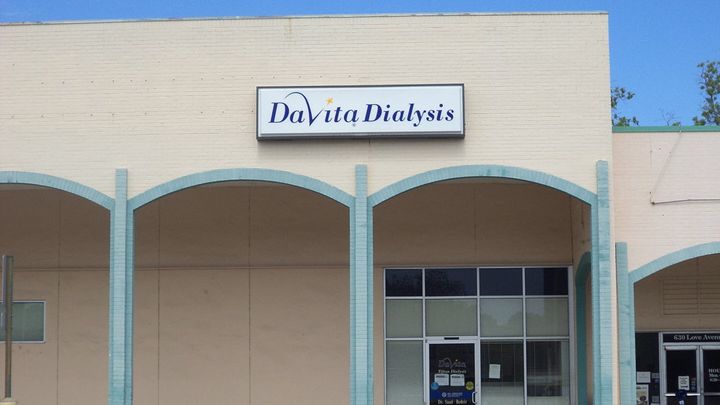The American Prospect is a nonprofit, independent magazine
covering public policy and politics. Sludge is re-publishing this article.
Two companies dominate the American outpatient kidney dialysis market: Denver-based DaVita and German-owned Fresenius. But their stranglehold on this sector is currently being challenged by an obscure bill in the California legislature, one they’ve poured $2.5 million into lobbying operations to oppose. The bill would crack down on a scam the dialysis duopoly has routinely engaged in, using a shadow charity called the American Kidney Fund to significantly juice their reimbursement rates from private insurance plans.
The situation could well presage how medical providers might react to a Medicare for All single-payer system, finding loopholes and work-arounds to profit outside the established market. In fact, dialysis is a great test case for this, because, thanks to a federal law nearly 50 years old, kidneys are the one American body part already governed under single-payer.
Dialysis, which involves the filtering of blood through an external machine to balance minerals and extract toxins when the kidneys are unable, is an extremely expensive medical procedure, in terms of time, energy, and especially cost. Often, it runs as high as $90,000 a year. In the days before the Affordable Care Act, that would have precluded most of the nearly 500,000 dialysis patients in the U.S. from obtaining insurance, cutting off their access to this lifesaving procedure.
That’s why, in 1972, the federal government passed a law extending Medicare coverage for all dialysis patients, regardless of age. That arrangement is great for dialysis patients, who are more likely to be from minority backgrounds and often unable to work due to the frequent, time-intensive nature of the treatment. It’s not, however, such a coup for outpatient dialysis clinics. Because Medicare has such a broad user base and can negotiate rates, Medicare-covered dialysis patients are much less lucrative customers for clinics than those with private insurance.
This is a particular problem for DaVita and Fresenius, which serve over 70 percent of all dialysis patients at their 4,000 outpatient clinics. Yet somehow, despite claiming to lose money on Medicare patients, the dialysis duopoly is quite lucrative, netting some $4 billion in combined annual profits. Here’s how.
DaVita’s own presentation at the 2018 J.P. Morgan Healthcare Conference tells the story. While 90 percent of treatments come from patients on government plans, accounting for 60 to 70 percent of revenue, a startling 115 percent of its profits come from patients with private insurance, which companies like DaVita and Fresenius can bill for four times as much. DaVita even claims to lose 10 to 15 percent on Medicare patients, though that assessment is hotly contested.
It should come as no surprise, then, that these providers are desperate to migrate their patients over to private insurance plans, which underwrite the entire operation of these hugely profitable, billion-dollar companies. And they’ve come to rely on one of the country’s largest philanthropic entities—the American Kidney Fund—to do it.
When patients consider their options for kidney dialysis, the American Kidney Fund offers financial assistance to those in need. Sometimes that can include covering the individual contributions still necessary under Medicare. But often, the AKF encourages patients not to stay on public health coverage, but to instead sign up for private insurance plans. The patients will receive the same treatments, often at the same clinics, and at no added cost to them: The AKF generously pays their insurance premiums.
While nothing changes financially for the patient, who may even be convinced that private coverage could be better than Medicare down the road, the financial picture for the dialysis companies changes drastically.
This arrangement, detailed in a 2017 report by the Southern Investigative Reporting Foundation, allows DaVita, Fresenius, and others to bill insurance providers for over $1,000 per treatment, while Medicare only pays $250 for the same procedure. And while there may be little sympathy for the bottom line of insurance companies, those elevated costs get passed down to other patients, in the form of higher premiums, co-pays, etc., as the insurers seek to recoup that money.
Where does the American Kidney Fund, with its annual budget of $250 million, get the money to generously subsidize dialysis treatments for patients? The largest individual contributors to the American Kidney Fund are DaVita and Fresenius, both of which make tax-deductible charitable contributions to the tune of some quarter billion dollars per year ($247 million in 2018). This funding accounts for roughly 80 percent of the AKF’s total donor base, according to an independent audit. It’s a symbiotic relationship: The AKF couldn’t exist without the dialysis companies, and the dialysis companies couldn’t be profitable without the assistance of the AKF.
There’s currently a bill in the California legislature, AB-290, that would curtail this arrangement. Under AB-290, companies like DaVita and Fresenius would be able to continue their charitable impulses by donating to the American Kidney Fund, but the amount of money they’d be able to bill private insurers would be capped at the Medicare reimbursement level. The bill also mandates that third-party providers like the AKF “shall agree not to steer, direct, or advise the patient into or away from a specific coverage program option or health care service plan contract,” while mandating that third-party providers commit to a patient’s coverage for the entire year, unconditionally.
Predictably, this proposal has the outpatient dialysis industry up in arms. With private insurance billing rates the sole source of their profits, AB-290 threatens to shut off the fire hose of cash that the industry bloats itself on. (Though according to Jim Wood, the California assemblyman who wrote the bill, that may not be entirely true. “I had the CEO for DaVita in my office, and he said they make money on Medicare, he said yes we do make money on Medicare,” Wood told me.)
The American Kidney Fund has responded by threatening to depart the state of California entirely, leaving its current recipients on both private insurance and Medicare behind. Meanwhile, the dialysis providers have ginned up an astroturf campaign called Dialysis is Life Support to do public outreach and put pressure on the state’s politicians.
This isn’t the first foray into California politics for dialysis providers, the state where an estimated 20 percent of the duopoly’s profits come from. In 2018, DaVita and Fresenius made Proposition 8, a ballot measure which would have capped dialysis revenue at 15 percent above the cost of care, the most expensive ballot measure in American history. That battle cost a mind-boggling $130 million all-in: $20 million from supporters, and over $111 million from the dialysis industry—$101 million of that ponied up by those same two companies, DaVita and Fresenius, in opposition. The ballot measure failed by nearly 20 percent.
Now, DaVita and Fresenius have trained their considerable financial resources on the state legislative process. Over the course of the past two years, they’ve been funneling money into a lobbying group called Patients & Caregivers to Protect Dialysis Patients, sponsored by the California Dialysis Council, expressly formed to “provide state-wide representation for end-state renal dialysis providers.” That group furnished the $100 million in funding for the ballot measure, and more for the anti–AB-290 coalition Dialysis is Life Support. In the first two quarters of 2019, the California Dialysis Council spent $110,000 in lobbying, according to the Secretary of State’s office.
Dialysis is Life Support has waged a multi-tiered campaign, compiling a list of dozens of health, community, business, and veterans groups across the state that purport to oppose AB-290. Nestled at the bottom of that list, beneath the Yuba-Sutter-Colusa Medical Association and the Los Angeles Wellness Station, are DaVita and Fresenius. The American Kidney Fund also appears.
But according to a report put out by Hindenburg Research, an investor group (they do not currently have any position in the stocks of the dialysis companies, long or short), some of those organizations weren’t even aware they’d formally opposed the bill, while others professed no knowledge of the fact that the coalition had been funded by DaVita and others. When I called a handful of listed groups to inquire about their stance, I was met with mostly hang-ups, wrong numbers, and unreturned messages.
Meanwhile, Dialysis is Life Support has used its endowment to run TV ads on CNN and roll out a patient-directed pressure campaign. The American Kidney Fund has simultaneously claimed that a reporting requirement within AB-290 would be in breach of a federally mandated firewall, threatening their charter and ability to exist in all other states. “We will have to withdraw, we’ve been very public about that,” Holly Bode, vice president of government affairs for the American Kidney Fund, told me.
But according to Jim Wood, the California assemblyman who wrote the bill, that’s a scare tactic, rather than a legal imperative. “We got two independent legal opinions that said, ‘No, that’s really not the case,’” he told me. “But the AKF is standing on their own legal opinion saying they’ll pull out of California completely if this bill passes.”
When I asked the American Kidney Fund if they had a statewide withdrawal contingency plan for their patients, some of whom are now on private insurance plans they’d been encouraged to join with the expectation their premiums would be paid, Bode responded that they only “have small grants for that, they’re $100, and we don’t have enough to give everyone.”
Meanwhile, the website for Dialysis is Life Support no longer bears a formal affiliation to the California Dialysis Council—it now says the site is paid for by itself. According to Kathy Fairbanks, a spokesperson for the group, the California Dialysis Council was just sponsoring the first stage of their campaign, an education-based outreach initiative. When the group began its media blitz and television advertising on August 12, they changed the website to its current form (Hindenburg published its report on August 13). Now, said Fairbanks, “the funding is coming from dialysis providers. But that’s not all the support we’re getting, it’s also from the coalition groups. They may not be contributing resources in terms of financial resources, but they’re helping us in terms of lobbying legislators.”
The fate of AB-290 remains uncertain. Already, one California legislative attempt to rein in dialysis pricing, SB 1156, died via veto by then-Governor Jerry Brown despite passing both houses, on the grounds that it was overly vague. But the California legislature will conclude its session on September 13, which means a decision should come soon.
With Medicare for All being discussed in national circles, the situation with the dialysis providers is instructive. Faced with a single-payer system with lower reimbursement rates for their service, the dialysis industry bankrolled a charity to shift people into private insurance and jack up the cost. We don’t know what loopholes might enter the picture under Medicare for All, but the dialysis duopoly scam bears watching as a potential tactic. It speaks to how resourceful medical providers might be in their vigorous opposition to single-payer, and why politicians need to be mindful of their power.
“I feel like it’s an unfair business practice all of us are paying for,” said Wood, who’s hopeful the bill will pass. “For me the bigger part of this is that, we’re trying to make sure we get access to care for as many people as possible, you can’t do that if you can’t contain costs.”
CORRECTION: An earlier version of this article may have led readers to the conclusion that DaVita and Fresenius spent $100 million on lobbying against AB-290. In actuality, the same organization that funded $100 million opposing the Prop 8 ballot measure in 2018 also funded the lobbying effort with leftover or additional funds. We are sorry for any confusion this may have given readers.
Related:



